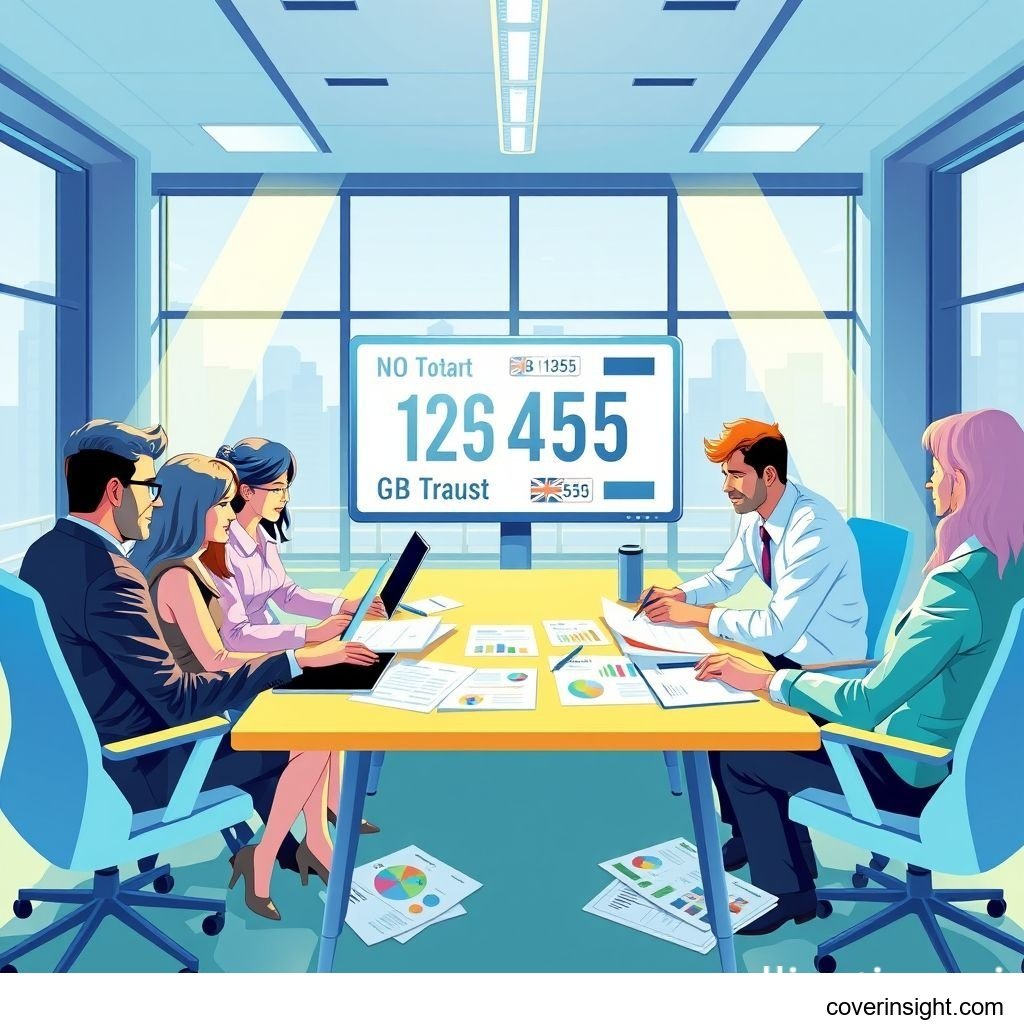Introduction
As 2025 unfolds, the landscape of car insurance in Great Britain continues to evolve, with digital platforms like auto trader playing an increasingly central role in how millions of motorists secure their policies. Navigating this dynamic environment requires a clear understanding of key coverage aspects, particularly the intricacies of No Claims Bonus (NCB) and windscreen protection. For anyone looking to purchase, renew, or simply compare car insurance, the efficiency and transparency offered by online aggregators such as auto trader are indispensable. This comprehensive guide aims to demystify the essential elements of secure GB car insurance for the year ahead, ensuring drivers are well-equipped to make informed decisions that safeguard their vehicles and finances.
Understanding GB Car Insurance in 2025 and Auto Trader's Role
The UK car insurance market in 2025 is characterised by a strong shift towards personalised pricing and digital accessibility. Insurers are leveraging vast datasets to refine risk assessments, while consumers benefit from tools that aggregate quotes quickly.
The Digital Landscape: Auto Trader's Influence
In this digital-first era, auto trader has become a go-to resource, not just for buying and selling vehicles, but also for sourcing competitive insurance quotes. Its platform simplifies the often-complex process of comparing various policies side-by-side, allowing drivers to find coverage that aligns with their specific needs and budget. This integration of vehicle sales with insurance comparison makes it a comprehensive hub for car owners.
Key Components: NCB & Windscreen Coverage
Two critical components that significantly impact both policy cost and protection are your No Claims Bonus (NCB) and windscreen cover.
-
No Claims Bonus (NCB): This is a discount offered by insurers to drivers who haven't made a claim on their policy for a certain number of years. The more claim-free years you accumulate, the larger your discount.
-
Windscreen Cover: Often an optional add-on or an integrated part of comprehensive policies, this covers the cost of repairing or replacing your car's windscreen, side windows, or rear window, typically without affecting your NCB.
Understanding how these elements work, especially when comparing options via an auto trader search, is vital for securing the best value and most appropriate protection.
Coverage Details
Choosing the right car insurance policy involves understanding what is covered and, just as importantly, what isn't. Policies in GB typically fall into three main categories, each offering different levels of protection.
What’s Included: Comprehensive vs. Third Party
Most drivers opt for comprehensive cover, which offers the broadest protection.
-
Comprehensive Insurance:
-
Covers damage to your own vehicle in an accident, regardless of fault.
-
Covers damage to third-party vehicles and property.
-
Includes fire and theft cover.
-
Often includes personal accident cover.
-
May include windscreen repair/replacement as standard or as an optional extra.
-
Typically offers greater peace of mind and often, counter-intuitively, can be more affordable than third-party policies due to the risk profiles of drivers who choose it.
-
-
Third Party, Fire & Theft (TPFT):
-
Covers damage to third-party vehicles and property.
-
Covers your vehicle if it's stolen or damaged by fire.
-
Does not cover damage to your own vehicle if you are at fault in an accident.
-
-
Third Party Only (TPO):
-
The minimum legal requirement in the UK.
-
Only covers damage to other people's vehicles and property, and injuries to other people.
-
Offers no protection for your own vehicle.
-
When using an auto trader comparison tool, pay close attention to the specifics of each policy. Ensure that critical elements like windscreen cover, breakdown assistance, and legal expenses cover are either included or available as cost-effective add-ons. For instance, many comprehensive policies will cover windscreen damage, but the excess might vary significantly.
Common Exclusions to Be Aware Of
Even comprehensive policies have limitations. Understanding these can prevent unwelcome surprises:
-
Driving without a valid MOT or servicing: Your policy may be invalidated if your vehicle isn't roadworthy.
-
Unauthorised drivers: If someone not listed on your policy drives your car and has an accident, your claim could be rejected.
-
Racing or off-road use: Most standard policies exclude damage incurred during these activities.
-
Exceeding passenger limits: Overloading your vehicle can also lead to claim refusal.
-
Negligence: Leaving your car insecure, for example, can impact theft claims.
-
Wear and tear: Damage due to normal depreciation or mechanical breakdown is not typically covered.
Always read the policy document thoroughly, especially the terms and conditions, to understand what situations are explicitly excluded. This level of diligence ensures that your chosen policy, sourced perhaps through an auto trader search, truly meets your protective needs.
Navigating Auto Trader for Optimal Policies
The digital marketplace has revolutionised how consumers access insurance products. Platforms like auto trader provide an unparalleled opportunity to find competitive deals and tailored coverage.
Leveraging Auto Trader for Competitive Quotes
Using a robust platform like auto trader significantly streamlines the process of obtaining car insurance quotes. Here's how to maximise its potential:
-
Accurate Information: Provide precise details about your vehicle, driving history, and claims record. Even minor inaccuracies can lead to invalidated policies or premium increases later.
-
Understand Your Needs: Before searching, decide what level of cover you require. Do you need a courtesy car, breakdown cover, or legal expenses protection?
-
Compare Like-for-Like: Don't just look at the headline price. Compare policy features, excesses, and specific benefits such as windscreen cover limits.
-
Flexibility with Excess: Adjusting your voluntary excess can lower your premium, but ensure it's an amount you can comfortably afford in the event of a claim.
-
Payment Options: Consider paying annually if possible, as monthly instalments often incur additional charges.
The ease of comparing options on auto trader empowers drivers to make more informed financial decisions, potentially saving hundreds of pounds each year. [Image: A screenshot of the Auto Trader car insurance comparison page with search filters visible. Alt Text: Auto Trader car insurance comparison interface showing various policy options.]
Protecting Your No Claims Bonus with Smart Choices
Your No Claims Bonus (NCB) is one of the most valuable assets you have as a driver. It represents years of responsible driving and translates directly into significant premium discounts.
-
Building Your NCB: Generally, insurers reward one year of claim-free driving with one year's NCB, up to a maximum (often five or more years).
-
Loss of NCB: Making a claim where you are at fault will typically reduce or even eliminate your NCB. Even a non-fault claim might impact it if your insurer can't recover costs from a third party.
-
No Claims Bonus Protection: Many insurers offer no claims bonus protection as an add-on. For an additional premium, this allows you to make a certain number of claims (e.g., one or two) within a policy period without losing your full NCB. While it costs extra, it can be a worthwhile investment, especially if you have a significant number of claim-free years.
-
Transferring NCB: Your NCB is usually transferable between insurers, but it's important to obtain proof from your previous insurer.
When using auto trader to compare policies, always check the impact of claims on NCB and whether no claims bonus protection is offered and at what cost. This is crucial for long-term savings.
Windscreen Cover: A Crucial Component
Windscreen damage, from chips to cracks, is a common occurrence. How your policy handles it can make a big difference.
-
Included vs. Optional: For comprehensive policies, windscreen cover is often included, but it might be an optional extra for TPFT policies.
-
Excess: Typically, the excess for windscreen claims is lower than the standard policy excess. For repairs, it might even be £0. For replacements, it could be £50-£100.
-
Impact on NCB: Crucially, most insurers state that a windscreen claim, whether for repair or replacement, will not affect your NCB. This is a significant benefit, as it means you can get minor damage fixed without fearing a premium hike at renewal.
-
Approved Repairers: Insurers often have a network of approved windscreen repairers. Using these usually ensures a smoother process and direct billing.
Always confirm the specifics of windscreen cover when reviewing policies on auto trader, paying attention to the excess amount and whether it truly has no impact on your NCB. A seemingly cheaper policy might have a high windscreen excess, costing you more in the long run.
Cost Analysis: Premiums and Auto Trader Insights
Car insurance premiums are highly individualised, calculated based on a vast array of factors. Understanding these factors and employing smart strategies can help you secure more affordable coverage.
Price Factors Influencing Premiums
Insurers consider numerous variables to assess risk and set your premium:
-
Driver Profile: Age, occupation, driving history (claims, convictions), and marital status all play a role. Younger drivers and those with past claims typically face higher premiums.
-
Vehicle Details: The make, model, age, engine size, and security features of your car significantly impact costs. High-performance or commonly stolen vehicles will be more expensive to insure.
-
Location: Where you live and where your car is parked (e.g., locked garage vs. street) influences your premium due to differing theft and accident rates in postcode areas.
-
Annual Mileage: The more you drive, the higher the perceived risk of an accident.
-
Coverage Level: Comprehensive is generally more expensive than TPO, though as mentioned, sometimes the opposite can be true for specific demographics.
-
Voluntary Excess: Agreeing to pay a higher voluntary excess will reduce your premium, as you take on more of the initial risk.
-
Named Driver Policies: Adding experienced, low-risk drivers as named driver policies can sometimes reduce premiums, but adding young or high-risk drivers will likely increase them. It's vital to be honest about the primary driver; fronting (claiming a lower-risk driver is the main user when they are not) is insurance fraud. [Image: Infographic showing factors affecting car insurance premiums. Alt Text: Factors affecting car insurance premiums, including driver age, vehicle type, and location.]
Saving Tips and Strategies
Beyond simply comparing prices on auto trader, there are several strategies to reduce your insurance costs:
-
Increase Security: Installing an approved alarm, immobiliser, or tracking device can lead to discounts.
-
Review Your Mileage: Be realistic but accurate about your annual mileage. Don't overestimate.
-
Pay Annually: If financially feasible, paying your premium in one lump sum usually avoids interest charges associated with monthly instalments.
-
Increase Voluntary Excess: As discussed, this can lower your upfront premium, but ensure the excess is affordable if you need to claim.
-
Consider Telematics/Black Box Insurance: Especially for younger drivers, a black box can prove safe driving habits and lead to lower premiums.
-
Maintain a Clean Driving Record: Avoiding convictions and claims is the most effective long-term strategy for building up a substantial NCB.
-
Shop Around Annually: Don't automatically renew. Use auto trader and other comparison sites every year to find the best deals. Insurers often offer better rates to new customers.
-
Multi-Car or Multi-Policy Discounts: If you have multiple cars or other insurance products with the same provider (e.g., home insurance), inquire about bundling discounts.
-
Advanced Driving Courses: Some insurers offer discounts for drivers who have completed recognised advanced driving courses.
By strategically applying these tips, you can significantly reduce the cost of your car insurance without compromising on essential coverage, especially when leveraging the power of platforms like auto trader.
Named Driver Policies: Considerations for Your Auto Trader Search
The inclusion of additional drivers on your policy can have a profound impact on your premium and overall coverage. Understanding named driver policies is crucial for accuracy and compliance.
The Role of Named Driver Policies in Reducing Costs
Adding a named driver means they are insured to drive your car, usually under the same terms as the main policyholder.
-
Potential Savings: If you add an experienced driver with a clean record, especially if they are a family member over a certain age, it can sometimes lower your premium. Insurers might see this as the risk being spread across more responsible drivers, or that the car will be used by a lower-risk individual some of the time.
-
The "Fronting" Trap: Conversely, if a young or inexperienced driver is the primary user of a vehicle but is listed as a named driver on a policy where an older, more experienced person is the main policyholder, this is called "fronting." It is illegal and can lead to the policy being invalidated, claims being rejected, and even criminal charges. Always ensure the main policyholder is the car's primary user.
-
Usage Patterns: Be honest about who drives the car most often. Your auto trader search should reflect the actual usage to ensure the policy is valid.
Ensuring No Claims Bonus Protection for All Drivers
While named driver policies are designed to cover additional drivers, their impact on the main policyholder's No Claims Bonus (NCB) can be a point of confusion.
-
Main Policyholder's NCB: Generally, if a named driver has an accident and a claim is made, it is the main policyholder's NCB that will be affected, not the named driver's personal NCB (as named drivers typically don't accrue their own NCB on someone else's policy).
-
Named Driver NCB Accumulation: Some insurers now offer a feature where named drivers can start to build their own NCB, though this is less common and usually only applies if they eventually take out their own policy with that specific insurer. Always check this detail when reviewing auto trader results.
-
Consider Multi-Car Policies: For households with multiple drivers and cars, a multi-car policy might be more cost-effective and allow each driver to accrue their own NCB separately, potentially offering better no claims bonus protection for each individual.
-
Transparency is Key: When adjusting your policy on an auto trader comparison platform, be transparent about who will be driving the vehicle. This ensures not only legal compliance but also that your policy provides the protection you expect, covering all authorised drivers fairly.
FAQs
Navigating car insurance can raise many questions. Here are answers to some common queries, particularly in the context of using platforms like auto trader.
-
How much does auto trader cost?
- Auto trader itself is primarily a platform for buying and selling cars, and comparing insurance quotes. The car insurance comparison tool on auto trader is free to use for consumers. You only pay for the insurance policy once you choose to purchase it from an insurer or broker.
-
What affects premiums?
- Premiums are affected by a wide range of factors including the driver's age, occupation, postcode, driving history (claims, convictions), annual mileage, the type of car, and the level of cover chosen. Security features, voluntary excess, and whether you opt for add-ons like no claims bonus protection also play a significant role.
-
Is it mandatory?
- Yes, by law, it is mandatory to have at least Third Party Only car insurance in Great Britain if you own or drive a vehicle on public roads. Driving without valid insurance is a serious offence. You can compare legal minimum options easily on auto trader.
-
How to choose?
- To choose the right policy, assess your needs (level of cover, specific add-ons like windscreen cover), use comparison sites like auto trader to compare quotes comprehensively, read policy documents carefully for exclusions and excesses, and consider the insurer's reputation and customer service reviews. Don't just focus on price; ensure the policy provides adequate protection.
-
Consequences of no coverage?
- Driving without insurance carries severe penalties. These can include a fixed penalty of £300 and 6 penalty points, unlimited fines if the case goes to court, disqualification from driving, and your vehicle being seized and potentially crushed. It's always advisable to secure cover through platforms like auto trader before driving. For more details on regulations, you can refer to the Financial Conduct Authority.
Conclusion
Securing the right car insurance in GB for 2025 is about more than just finding the cheapest premium; it's about intelligent protection. By leveraging the power of platforms like auto trader, understanding the nuances of your No Claims Bonus, windscreen coverage, and the impact of named driver policies, you can make informed decisions that safeguard your financial future. Remember to always provide accurate information, compare policies thoroughly, and proactively manage your insurance needs. For broader industry insights, the Association of British Insurers offers valuable resources. Whether you're searching for your first policy or renewing an existing one, the digital tools available make the process more transparent and efficient than ever. By following the advice outlined in this guide, you can confidently navigate the market and ensure your vehicle is securely protected for the road ahead. For more general information on insurance, visit Insurance Resources Global. For GB-specific details, refer to GB Insurance Home.








Comments